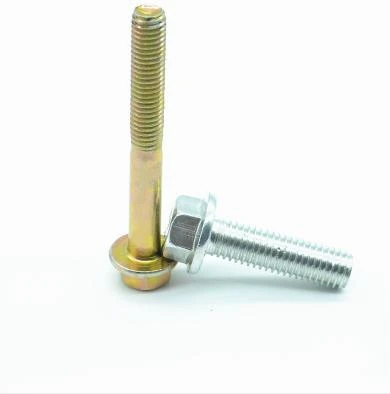M4.7 Screws Production and Quality Assurance from Leading Manufacturers
Oct . 13, 2024 19:51 Back to list
M4.7 Screws Production and Quality Assurance from Leading Manufacturers
The Impact of M4 0.7 Screws in Modern Manufacturing
In the world of manufacturing, the components used in assembling products often play a crucial role in determining both the performance and quality of the final product. Among these components, screws stand out as fundamental elements that provide structural integrity and assembly efficiency. One such type of screw is the M4 0.7 screw, which has gained popularity across various industries due to its unique specifications and versatility.
Understanding M4 0.7 Screws
The M4 0.7 screw refers to a metric screw with a nominal diameter of 4 millimeters and a thread pitch of 0.7 millimeters. The M denotes that it adheres to the metric system, a standardized measurement system that is widely used in engineering and manufacturing worldwide. The designation 4 indicates the screw's diameter, while 0.7 specifies the distance between threads, critical for ensuring proper fit and function.
Applications in Various Industries
M4 0.7 screws are commonly utilized in several industries, including automotive, electronics, and furniture manufacturing. Their mid-sized diameter provides an excellent balance between strength and weight, making them ideal for applications where both are essential. For instance, in the automotive industry, these screws are frequently used to assemble body panels, engine components, and other structural elements, contributing to the vehicle's overall durability and safety.
In the electronics sector, M4 0.7 screws are prevalent in the assembly of devices such as computers, smartphones, and household appliances. Their precise thread design allows for secure fastening of delicate internal components, ensuring that the devices operate efficiently and reliably. Moreover, in furniture manufacturing, these screws are used to create sturdy and long-lasting furniture pieces, allowing for easy assembly and disassembly, which is particularly appealing for flat-pack furniture retailers.
Advantages of M4 0.7 Screws
m4 .7 screws manufacturer

One of the significant advantages of M4 0.7 screws is their compatibility with a wide range of materials. They can be successfully used with metals, plastics, and wood, making them highly versatile. This adaptability allows manufacturers to streamline their production processes by reducing the variety of fasteners needed, ultimately lowering costs and increasing efficiency.
Additionally, M4 0.7 screws are relatively easy to install and remove, thanks to their standardized design, which can be utilized with common tools. This ease of use not only accelerates the assembly process but also facilitates repairs and maintenance, particularly in industries where equipment may require frequent servicing.
Manufacturing Quality and Standards
The manufacturing of M4 0.7 screws requires adherence to strict quality standards to ensure their reliability and performance in various applications. Manufacturers must consider factors such as material selection, thread precision, and surface treatment. High-quality screws are often made from carbon steel, stainless steel, or other durable alloys, with surface treatments such as galvanization or black oxide to enhance corrosion resistance.
Furthermore, manufacturers often utilize advanced technologies like computer numerical control (CNC) machining and automated assembly lines to produce M4 0.7 screws with high accuracy and consistency. This commitment to quality not only meets industry standards but also ensures customer satisfaction and confidence in the products they use.
Future Potential and Innovations
As industries evolve, the demand for fasteners like M4 0.7 screws is likely to grow, fueled by innovations in materials and manufacturing techniques. The rise of sustainable practices and the shift toward lightweight materials in various sectors could lead to the development of new screw designs optimized for strength while reducing weight further.
In conclusion, M4 0.7 screws are indispensable components in modern manufacturing, offering numerous advantages across various industries. Their versatility, ease of use, and compatibility with different materials make them an excellent choice for manufacturers looking to enhance product quality and assembly efficiency. As technology advances, the potential for further innovations in screw design and manufacturing will only increase, solidifying the M4 0.7 screw's role in the future of industry.
Latest news
-
High-Quality Panel Stud Bolt Reliable Panel Stud Bolt Factory & Suppliers
NewsJul.08,2025
-
High-Precision Fine Thread Locknuts Manufacturer & Supplier Custom Solutions
NewsJul.08,2025
-
PH Imperial Stud Bolt – High Strength Fasteners from Leading Supplier & Factory
NewsJul.07,2025
-
High-Quality Allen Wrench Bolts Leading Factory, Company & Suppliers
NewsJul.07,2025
-
Wholesale Ball Stud Bolt - High Quality Supplier & Factory Price Reliable Wholesale Ball Stud Bolt Company
NewsJul.06,2025
-
High-Strength Alloy Bolts Manufacturer & Supplier Quality Alloy Fasteners Factory
NewsJul.06,2025
